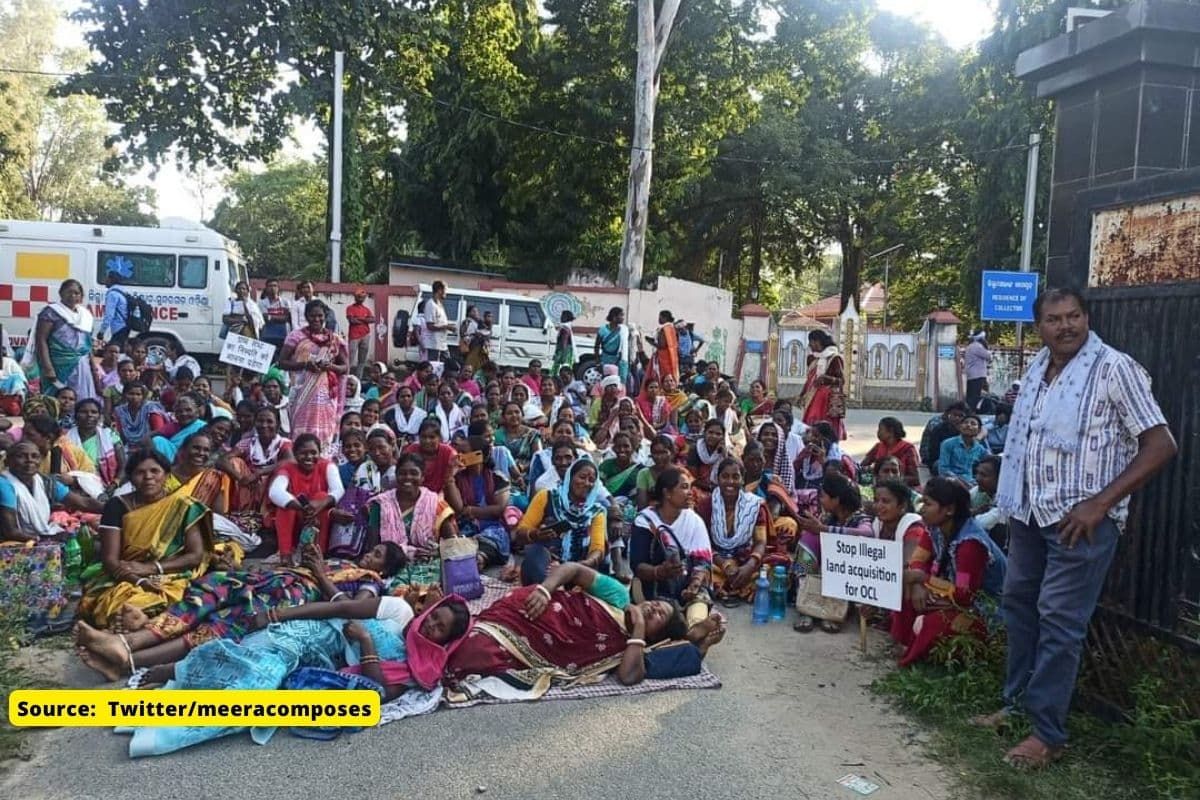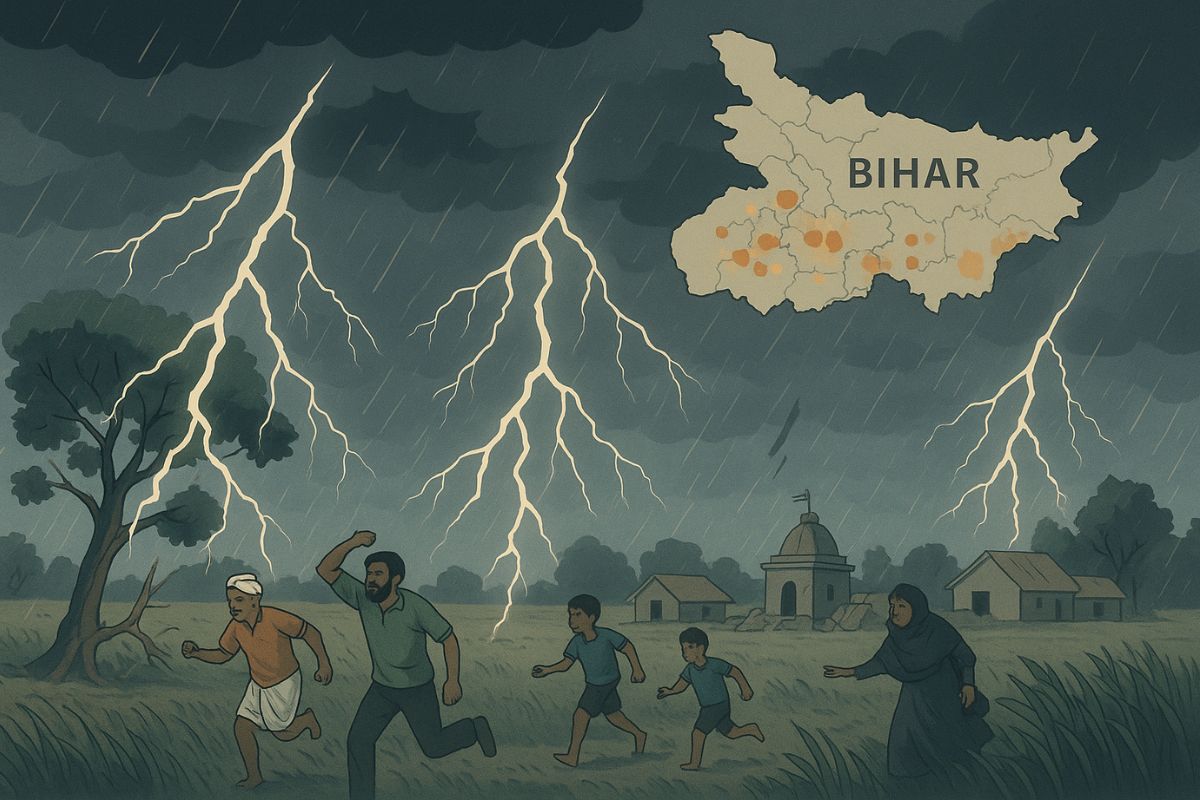Thousands of Adivasis have set out on a 65 km trek to avoid leaving their villages. Villagers from 5 panchayats of Rajgangpur and Kutra blocks of Sundargarh district have staged a march against the administration.
The march, which started from Rajgangpur Kesramal on the 18th, reached Badgaon yesterday. He resumed his march from Bargaon this morning. Tomorrow the tribes will arrive in Sundergarh and present a letter of demand to the District Collector.
In one video, they are seen chanting against the administration for turning a deaf ear to their long-standing protest. “The forest is our mother and we cannot be tricked into separating from it,” the villagers said.
Tribals from Odisha Sundargarh district have to sleep outside even after coming to the office after walking 100 km, spending the night in the open sky, no officer wants to talk about illegal land acquisition. The government should arrange for mobile toilets, talk to the tribals today.
The district administration has started the process of acquiring 77 acres of land in these five panchayats for the expansion of Dalmia Bharat Cement Limited or OCL’s limestone mine in Rajgangpur. The local tribes have opposed it from the beginning.
Tribes dominated villages
In May this year, the Forum Committee for Gram Sabha, a local people’s organization, began protesting against OCL India Ltd.’s proposed acquisition of land for limestone mining in Rajgangpur, Sundargarh.
These are largely villages dominated by scheduled tribes. Their population ranges from 94% to 74% at the village level. Economically, the majority of the population depends on agriculture and the majority are marginal and small farmers.
According to the SIA study report, the average family land holding is only 1 to 1.5 acres. Due to mining during the last decades, agriculture has been severely affected in the surrounding area. The water-holding capacity of the land has decreased, slowly turning fertile land into dry land. Local people have been forced to abandon cultivation in the winter season due to excess air pollution caused by limestone mining and cement factories. The water table is falling in the area and safe drinking water is a big problem in many of the villages.
The prevalence of TB is a common phenomenon; people are dying from this disease even after undergoing treatment. A small part of people is employed as drivers, security guards, and casual workers in mines and factories, not as regular employees but as casual workers under labor contractors.
Land acquisition
The land acquisition process started in 2018, but has since received strong protests from villagers. The agitators said that according to the Fifth Schedule of the Constitution, tribal land in Sundargarh district cannot be acquired without the consent of Gram Sabha. From the beginning, the Sabha meetings have rejected the land acquisition proposal, but the administration is resorting to illegal and illegal means to benefit private enterprise, they alleged.
OCL needs a total of 717.10 acres in seven villages in the Rajgangpur and Kutra blocks for the expansion of the Lanjiberna limestone mines. It has proposed to acquire 164.82 acres in Kukuda, 29.79 acres in Bihabandh, 162.82 acres in Alanda, 57.80 acres in Lanjiberna, 293.25 acres in Kesramal and 8.48 acres in Jhagarpur.
The SIA study reports mention that 88% of the affected families do not want to part with the land, while the LAAR Law clearly states that the prior consent of 80% of the affected families is required for the acquisition of land for private companies. Ignoring this important provision, the district administration has gone ahead with the land acquisition process.
Provisions
According to the provisions of the 2006 EIA Notification, the Public Hearing should have been a consultation process between the project proponent and the people. However, it is clear from the video recordings that the hearing was a sham.
Similarly, there are many special provisions for the Scheduled area in the LAAR Act 2013 and the Government. of the Odisha Rules-2016. For example, “No ground accusation will be made in the Scheduled areas” and if it occurs, it will be done “as a last resort”. Furthermore, it says: “in all cases of acquisition or alienation of land in areas included in the Program, the consent of the Gram Sabha or Panchayat concerned must be obtained”. None of these provisions has been respected.
According to the Act, it is mandatory to obtain the prior consent of the Gram Sabha to conduct a Social Impact Assessment (SIA) study. However, the study was conducted in ignorance of this provision only to comply with the formalities. When public hearings were organized on the draft SIA reports, the villagers did not allow this to happen. But the final reports of the study indicate that the public hearings have been carried out “smoothly and successfully”.
Also Read
- Tribal community in Jammu Kashmir discriminated since independence
- Odisha panchayat polls: Tribals protest against reduction in quota
- In Dumka tribal woman beaten up, stripped naked
Follow Ground Report for Climate Change and Under-Reported issues in India. Connect with us on Facebook, Twitter, Koo App, Instagram, Whatsapp and YouTube. Write us on GReport2018@gmail.com









